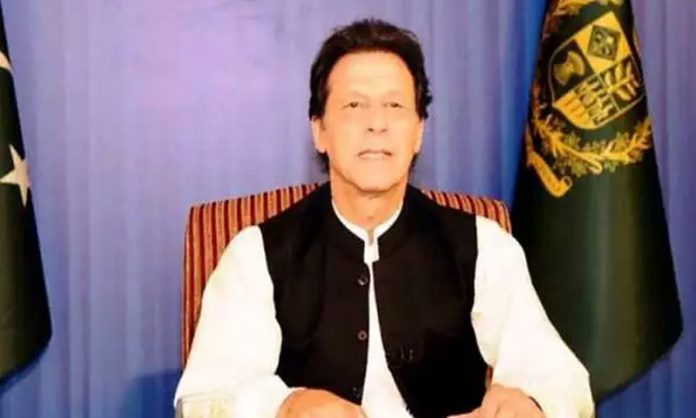LONDON: Two experts of a leading UK security think tank have advised the British government to help Pakistan achieve its objectives in the fight against corruption.
In a new analysis released on Monday, Tom Keatinge and Anton Moiseienko noted how UK is integral to Pakistan’s anti-corruption efforts as the government of Prime Minister Imran Khan marks its first 100 days in office.
Keatinge and Moiseienko argued that progress on one particular issue will be closely scrutinised: tackling corruption and, specifically, the recovery of previously looted national wealth.
Keatinge, Director of the Centre for Financial Crime and Security Studies at RUSI, and Moiseienko, Research Analyst, Centre for Financial Crime and Security Studies, said that some people see PM Imran’s rhetoric against corruption as populist and playing to “the galleries of angry Pakistanis who believe that all the ills of the country are due to the lavish lifestyles of the elite”.
They said that historically, the UK’s illicit finance engagement with Islamabad has focused on the flow of money leaving the country for Pakistan with these funds mostly representing the proceeds of drugs and earnings from other forms of organised crime.
In 2015, the UK’s first National Risk Assessment (NRA) of Money Laundering and Terrorist Financing noted that Pakistan is one of the top two outbound destinations from the UK for undeclared cash detected at the UK border, a large element of which is adjudged to be linked to criminality. In 2018, the UK’s National Strategic Assessment of Serious and Organised Crime for the first time listed Pakistan as one of the top three source countries of politically exposed persons (PEPs) investing in the UK.
“The assessment also acknowledges the uncomfortable truth that UK is a prime destination for foreign corrupt PEPs to launder the proceeds of corruption. Many in Pakistan would agree. It is this flow of funds from Pakistan to the UK that Mr Khan is targeting. And as a recent field trip to Pakistan by the authors of this analysis indicated, it is this flow of funds that looms large in the view of many Pakistanis, from bankers to serving and retired government and military officials. London – and in particular its property market – has been the subject of extensive reporting in the Pakistani media and is seen as an irresponsible facilitator of the looting of the state’s assets by the corrupt elite. Inevitably, the role Pakistan plays as a destination for criminal finances from the UK is barely acknowledged,” they said.
Keatinge and Moiseienko noted that expectations in Pakistan are high from the UK government.
The report said: “Awareness of the UK’s new Unexplained Wealth Order powers, introduced via the UK’s Criminal Finances Act in 2017 and deployed cautiously since, is high in Pakistan, fueling hope that the task force set up by Mr Khan to repatriate wealth looted from the country will achieve striking success where the UK is concerned. However, few people realise that Unexplained Wealth Orders are an investigative tool and, unlike Pakistan’s National Accountability Ordinance of 1999, UK law does not make it a criminal offence to have assets beyond means. Still, a recent visit to the UK by Mirza Shahzad Akbar, Special Assistant to Prime Minister Khan on Accountability, included discussions with the British Home Secretary and the UK Prime Minister’s Anti-Corruption Champion John Penrose on curbing money laundering and the recovery of assets acquired through illegal means.”
Expectations of success are high in Pakistan and the success of these efforts will inevitably be linked to the willingness of the UK to be a cooperative partner, but also, the impartiality and credibility of Pakistan’s judicial processes, the experts explained.
Keatinge and Moiseienko said that for the UK, the risks of not offering a helping hand are high. The authors advised that a failure to meet expectations on what the Khan government wants from London will almost certainly strengthen the case of those in Islamabad, Karachi and Lahore that view the UK as part of the problem, not part of the solution.





